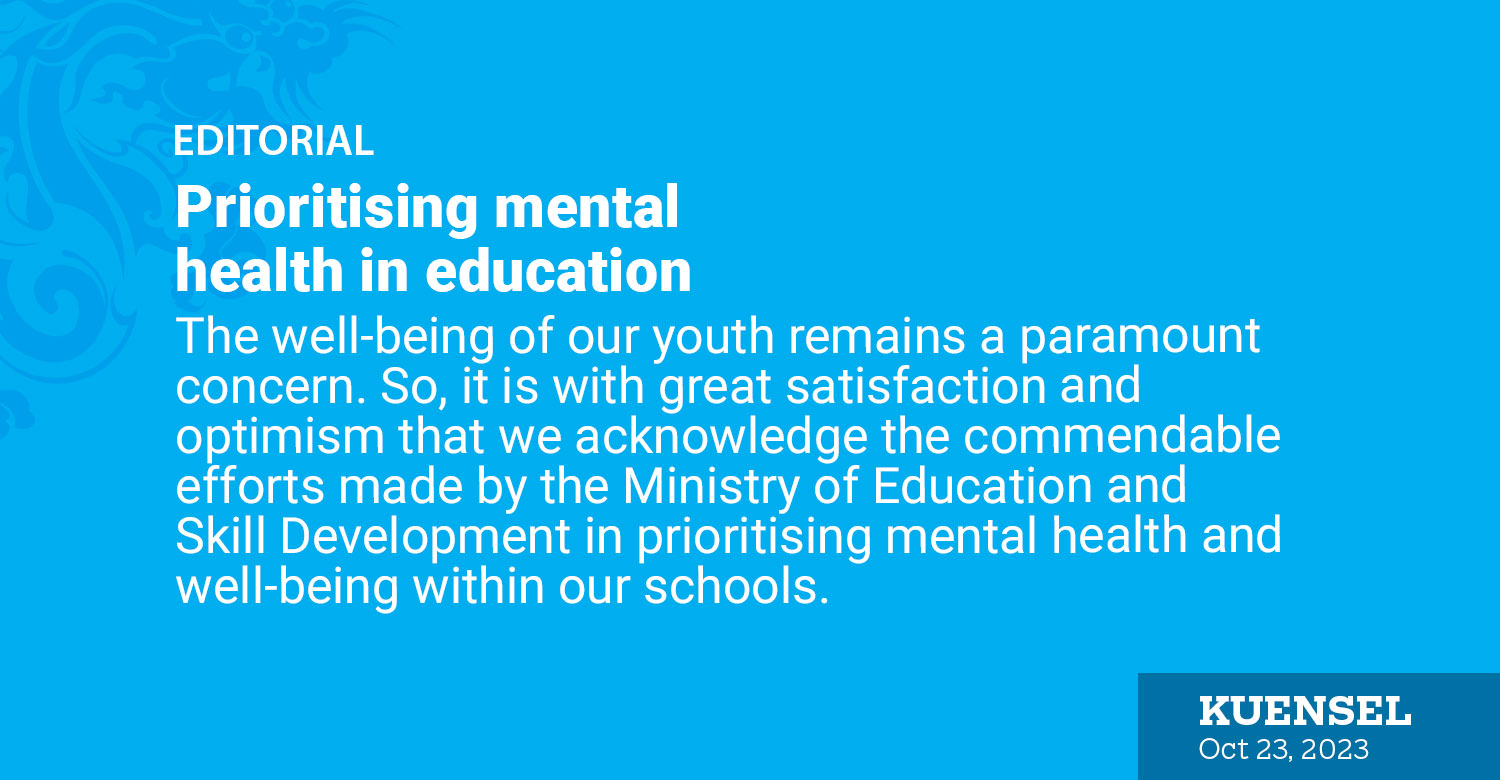The well-being of our youth remains a paramount concern. So, it is with great satisfaction and optimism that we acknowledge the commendable efforts made by the Ministry of Education and Skill Development in prioritising mental health and well-being within our schools.
The government’s commitment to nurturing the holistic development of our students is a testament to a brighter future, yet there remains a pressing need for us to do even more.
The introduction of the mentor-mentee programme is a remarkable stride towards ensuring that every student has access to the guidance and support necessary for their mental and emotional growth. This programme enables students to form connections with mentors who can provide valuable insights, not just academically, but also in navigating the complex terrain of life itself.
Such guidance has the potential to leave an indelible mark on young minds and foster the resilience required to thrive in a challenging world.
The establishment of well-being focal teachers is another commendable move. These dedicated professionals play a pivotal role in creating a supportive and nurturing environment for students.
Additionally, the introduction of spiritual programmes in schools is an acknowledgment of the profound impact that spirituality and mindfulness can have on an individual’s well-being. These programmes create a space for students to explore their inner selves, cultivate a sense of purpose, and connect with something greater than themselves.
In a world that often seems overwhelming, these initiatives empower students to find solace and meaning, a profound tool for combating the challenges they may encounter.
The online counselling services and students’ resilience development programmes are exemplars of innovation meeting necessity. The digital age has opened new avenues for seeking help and guidance, and the government’s decision to leverage these platforms for the benefit of students is commendable. It not only bridges the gap between students and mental health professionals but also removes the stigma associated with seeking help.
The resilience development programmes equip students with the tools they need to bounce back from adversity and face the world with confidence and determination.
The training of gender and child focal persons is an essential part of safeguarding the most vulnerable members of our society. The dedication to providing timely care and protection to women and children underscores a commitment to building a more inclusive and compassionate society. These individuals act as guardians, ensuring that no child or woman is left without support in times of need.
However, despite the progress made, there is still much work to be done. Mental health issues continue to afflict our youth, and the demand for support and resources remains high. It is incumbent upon us to further invest in these initiatives and expand their reach to all corners of our nation.
The mental well-being of our youth is a national asset, and it deserves nothing less than our utmost attention and care.
More importantly, perhaps, we need to focus on creating a comprehensive mental health curriculum, ensuring that the importance of mental well-being is not relegated to mere programmes but becomes an integral part of the educational experience. Educating students about mental health, emotional intelligence, and coping strategies is as important as teaching them mathematics or science.
As the world continues to evolve and the challenges faced by our youth become more complex, our commitment to their well-being must remain resolute.


